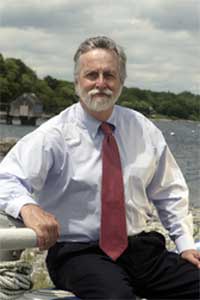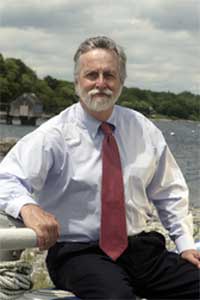 KINGSTON, R.I.-April 14, 2009- –President Robert L. Carothers, who will step down in June as the 10th president of the University, will deliver URI’s 123rd commencement address during undergraduate ceremonies Sunday, May 17.
KINGSTON, R.I.-April 14, 2009- –President Robert L. Carothers, who will step down in June as the 10th president of the University, will deliver URI’s 123rd commencement address during undergraduate ceremonies Sunday, May 17.
“This will be a very special commencement ceremony for our graduates and their families. President Carothers has not only been an inspirational academic leader for the entire URI community, he also has lived and experienced a full and active life as a global citizen and world leader in higher education,” said Donald DeHayes, URI provost and vice president of academic affairs. “I am so pleased that he has agreed to share his own personal “lessons learned along the way” in this his “last lecture” to our graduates as they commence their own explorations into the work of the world. This commencement will be an event not to miss.”
Three prominent individuals will receive honorary degrees during commencement ceremonies.
Graduate Commencement Ceremonies, Saturday, May 16
• William J. Brennan of Gaithersburg, Md., principal associate at W.J. Brennan Associates, a policy and management-consulting firm with a focus on environmental affairs, will receive an honorary doctor of science degree and will speak during the graduate ceremony. A 1985 alumnus, Brennan earned a master’s degree in marine affairs. His son, Tyler Brennan, will officially become a 2009 URI graduate. He finished his work for his undergraduate degree at URI in December and now works in New Orleans. 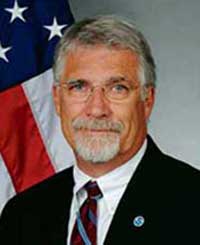
Brennan had a long and distinguished career in marine and environmental policy at the state, national, and international levels. At the time of his recent “retirement”, he was the administrator of the prestigious National Oceanic and Atmospheric Administration (NOAA) in Washington, D.C. and assistant secretary of Commerce for Oceans and Atmosphere.
Brennan also served as director of the U.S. Climate Change Science Program, overseeing the work of 13 federal departments, agencies, and White House offices to integrate the planning and budgeting of federal climate and global change activities. The program’s primary mission is to bring together research conducted by federal scientists, academic scientists, and others to arrive at a consensus on how much the global climate is changing, how it’s changing, and why it’s changing.
Undergraduate Commencement Ceremonies, Sunday, May 17
•Charles D. Walton of Cranston retired as associate dean for the Office of College Opportunity and Support Programs for the Community College of Rhode Island last year where he helped more than 5,100 low-income, first –generation, minority and disabled students to succeed in post-secondary educational experiences each year. He will receive an honorary doctor of laws degree. 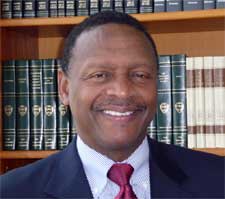
The first African-American state senator in Rhode Island history, he faithfully represented his district in the City of Providence for nearly 20 years. He sponsored many pieces of legislation that continue to benefit thousands of Rhode Islanders. For example, he introduced the Community Reinvestment Act, which prohibited banking institutions from redlining low-income and minority populated areas. The law became a strong vehicle for building credit and support for minority entrepreneurs and homeowners in low-income neighborhoods. He enacted a Senate resolution establishing the Rhode Island Minority Health Program under the Department of Health. The act created a tax on smokeless tobacco products that generates more than $250,000 annually, supporting training for low-income and minority populations faced with unique health problems.
Walton now divides his time between Rhode Island and North Carolina.
•José Maria Neves, prime minister of the Republic of Cape Verde, is an internationally recognized African leader. He will receive an honorary doctor of laws degree.
Born on the island of Santiago, he earned a bachelor of arts degree in public administration from the School of Business Administration of Sao Paulo, Brazil.
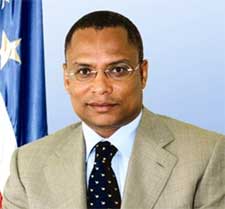 He emerged as a political leader in the Amilcar Cabral African Youth organization. In 2000, he became mayor of his hometown of Santa Catarina and soon was elected as his party’s and parliamentary leader. After 10 years in opposition, he led his party to victory in the legislative elections of 2001 and 2005. Under his democratic leadership, Cape Verde, an archipelago slightly larger than Rhode Island, has cultivated mutually beneficial relations with the United States.
He emerged as a political leader in the Amilcar Cabral African Youth organization. In 2000, he became mayor of his hometown of Santa Catarina and soon was elected as his party’s and parliamentary leader. After 10 years in opposition, he led his party to victory in the legislative elections of 2001 and 2005. Under his democratic leadership, Cape Verde, an archipelago slightly larger than Rhode Island, has cultivated mutually beneficial relations with the United States.
The prime minister championed the creation of the University of Cape Verde and partnerships between it and higher education institutions across the world. It was in this context that he visited Rhode Island and southern Massachusetts last year, which are home to large Cape Verdean populations. During his visit, Neves came to URI, which has developed special relations with Cape Verde.

